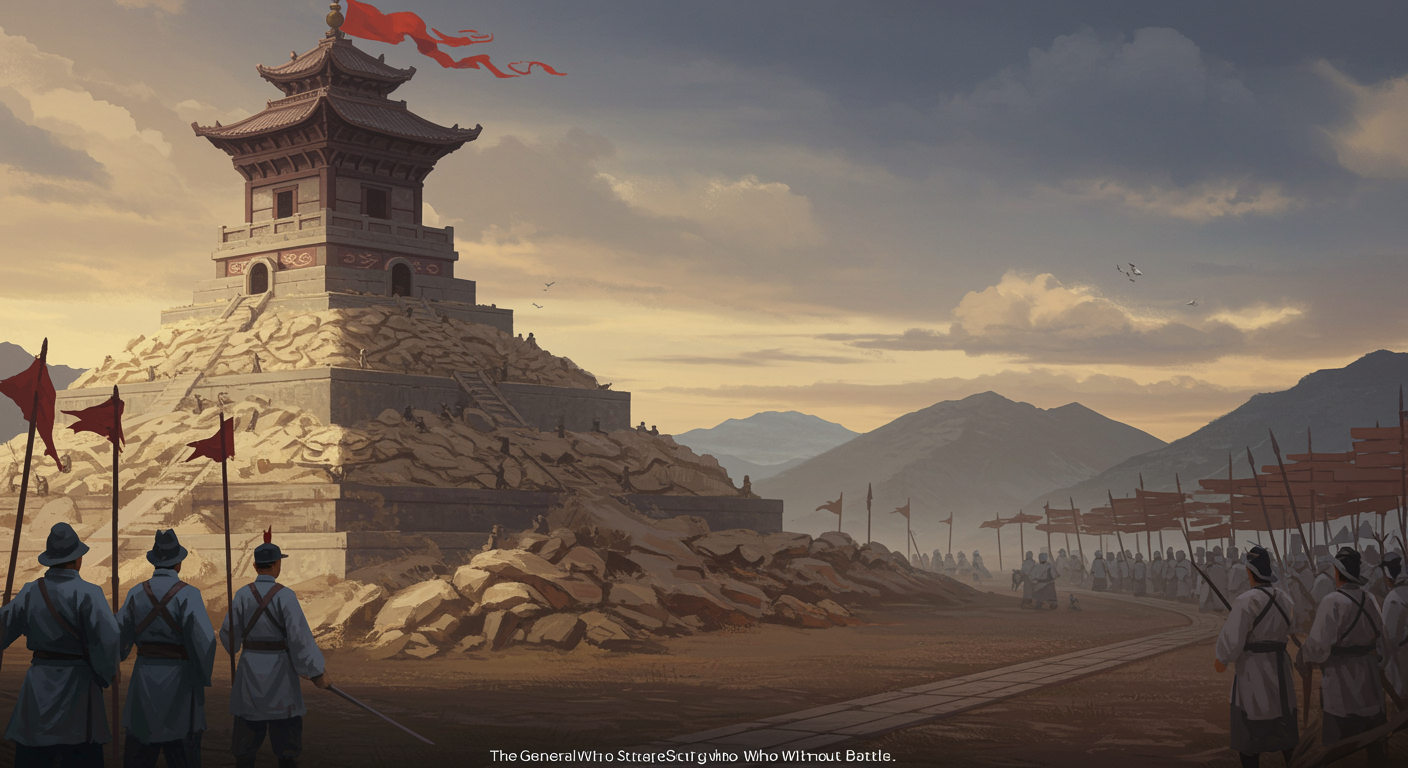
Imagine a military strategist whose insights have guided commanders for millennia, yet who might have never stepped onto a battlefield himself. Or, if he did, preferred to secure victory without engaging in a single direct clash. This seemingly paradoxical figure is Sun Tzu, the enigmatic author of The Art of War, a text that continues to shape our understanding of conflict, power, and human endeavor across centuries and civilizations. His enduring legacy isn’t just about winning wars, but about winning them with such profound strategic superiority that fighting becomes unnecessary.
The very existence of Sun Tzu is cloaked in a fog of ancient mystery. Scholars debate whether he was a single historical individual or a compilation of strategic thought from various masters. Accounts from the Records of the Grand Historian, compiled by Sima Qian around the 1st century BCE, describe a general named Sun Wu who served King Helü of Wu during China’s turbulent Warring States period (c. 475–221 BCE). This era was characterized by incessant conflict among rival states vying for dominance, a landscape ripe for the development of sophisticated military theory. Regardless of his precise identity, the wisdom attributed to him became foundational.
At the heart of The Art of War lies a revolutionary philosophy: “Supreme excellence consists in breaking the enemy’s resistance without fighting.” This isn’t pacifism; it’s the ultimate expression of strategic prowess. Sun Tzu advocated for a holistic approach to warfare that prioritized intelligence, deception, psychological manipulation, and the disruption of an enemy’s plans long before any swords were drawn. Rather than seeking to annihilate an opponent through brute force, the ideal Sun Tzu general would achieve victory by outmaneuvering, isolating, and demoralizing the enemy, making their defeat inevitable and their will to resist crumble. The goal is to preserve one’s own forces, conserve resources, and ultimately absorb the vanquished without the costly devastation of direct engagement.
A cornerstone of this approach is the principle, “Know your enemy and know yourself, and in a hundred battles you will never be defeated.” This isn’t merely advice; it’s a directive for comprehensive understanding. A master strategist, according to Sun Tzu, invests heavily in intelligence gathering, meticulously studying the enemy’s strengths, weaknesses, motivations, and logistical capabilities. Simultaneously, they conduct an equally rigorous self-assessment, understanding their own army’s morale, resources, and leadership. Consider a master chess player who not only understands the inherent power of their pieces but also anticipates multiple moves ahead of their opponent, shaping the board to make certain outcomes unavoidable. Sun Tzu’s general operates similarly, shaping the environment of conflict to ensure a favorable outcome before the conflict truly ignites. They might use terrain to their advantage, manipulate supply lines, or sow discord among enemy ranks, all part of a deeper game where the actual confrontation is the final, often anticlimactic, act.
The influence of this historical treatise extends far beyond traditional military campaigns. Throughout history, leaders from diverse fields have drawn inspiration from The Art of War. Mao Zedong famously incorporated Sun Tzu’s principles into his revolutionary guerrilla warfare tactics. Napoleon Bonaparte is said to have studied its pages, and countless business executives today reference its strategies for corporate competition, negotiation, and market dominance. A company might “win without fighting” by out-innovating a competitor, rendering their products obsolete, or forming strategic alliances that isolate them within the industry. It’s about strategic positioning and foresight, making the opponent’s options so unappealing that surrender or retreat becomes their most rational choice, preserving both sides’ assets in the process.
So, why the label “the general who never fought a battle”? It’s not necessarily a literal claim that Sun Tzu never personally commanded troops. Instead, it highlights that his genius, and the essence of his teachings, lay in the intellectual and strategic mastery of conflict, rather than in acts of battlefield heroism. His wisdom instructs that true power is found in avoiding costly confrontations, in achieving victory through superior planning and understanding. The ideal general, by his standards, is the one whose campaigns are so perfectly executed that the enemy capitulates without a significant struggle, leaving behind little evidence of a “battle” in the conventional sense.
Sun Tzu’s enduring legacy reminds us that conflict, in all its forms, is often a battle of minds before it is a clash of forces. His ancient insights continue to challenge our perceptions of power, demonstrating that the most profound victories are sometimes those achieved not through overwhelming might, but through an unparalleled mastery of strategy. It prompts us to consider: in any arena of competition, what does it truly mean to “win,” and could the most effective path forward often involve sidestepping the fight altogether?